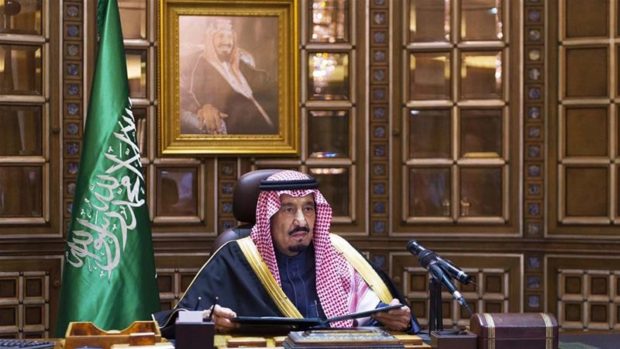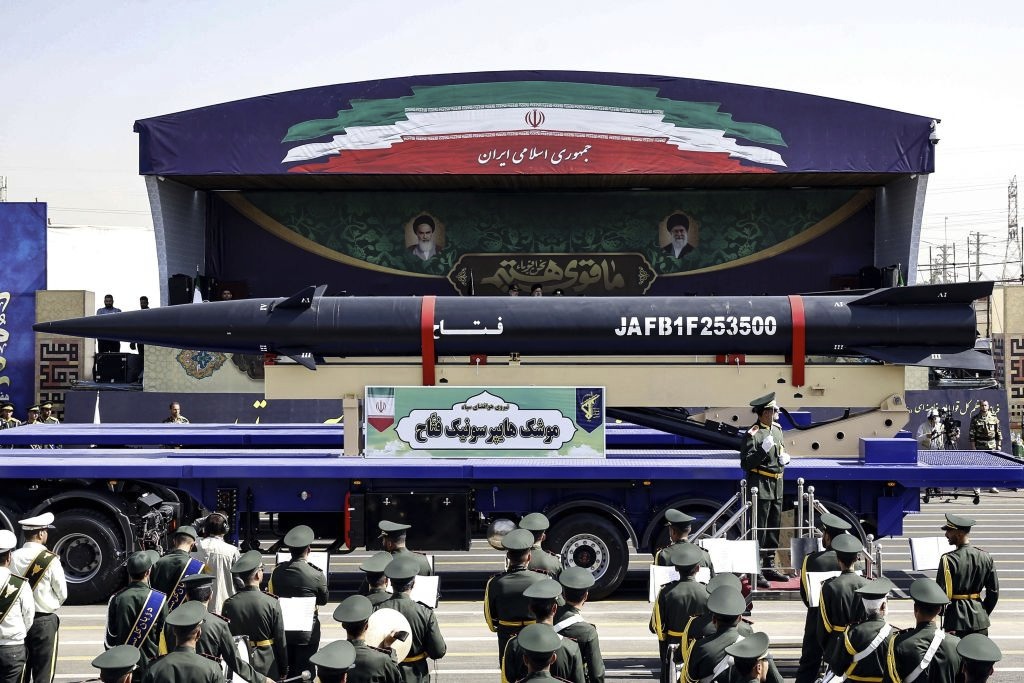3 Riyadh Summits … Security and Stability through Unity and Force
Mohamed Chebaro/Asharq Al Awsat/May 19/17
Beirut – The Arab region will enter next week a new phase which will take shape by the upcoming visit of US President Donald Trump to Saudi Arabia and the three summits he will hold with Custodian of the Two Holy Mosques King Salman bin Abdulaziz, the leaders of the Gulf and the leaders of the Arab and Islamic countries.
This event is significant for the messages it delivers, starting with the symbolism of the Riyadh summits and ending with the large number of dignitaries expected to attend them. The choice of Saudi Arabia as a mandatory medium for communication and dialogue between the Arab and Islamic worlds is also significant.
The summits are expected to all be dedicated towards finding means to combat the imminent dangers facing the region, which has been plagued by wars and conflicts for years. Leading the way will be the fight against terrorism, which is seen primarily as an Arab-Islamic mission, and confronting the destabilizing influence of Iran in the area.
During the latest Saudi cabinet session, King Salman stated that Trump’s visit and the three summits aim at “bolstering global security and stability.” This can be applied to Saudi-US ties, Gulf-US ties and the Arab-Islamic-US summit.
The statement can be used as a slogan for the summit and placed at the top of their priorities. This stance was echoed by the official account of the event, which tweeted that the “Riyadh summit will tackle all regional and international challenges and seek means of cooperation in order to achieve security and stability.”
The Saudi position on the summits was met with a similar American one, especially after National Security Advisor Herbert McMaster had said that they are aimed at bolstering security partnership with Arab and Islamic countries. He underlined the need to confront the al-Qaeda and ISIS groups, as well as Iran and the Syrian regime that are spreading chaos and violence in the region. This can be achieved through establishing a stronger and deeper partnership with Washington’s Gulf, Arab and Muslim partners, he explained.
All this sums up the situation in the region and what it can expect in the upcoming phase, especially since Saudi Arabia had in recent years set the foundation for a Gulf-Arab-Islamic alliance. This started with the “Gulf Shield” operation, leading to the “Northern Thunder” military exercise and “Decisive Storm” operation, which saw the participation of Gulf, Arab and Islamic countries, most of which are taking part in the Riyadh summits.
If “security and stability” cannot be achieved except through force against ISIS and other terrorist organizations, which is a battle that Saudi Arabia has been waging for decades, eyes will be turned towards Iran, most notably after the US Treasury announced new sanctions against a number of Iranian military officials and Chinese companies that are linked to Tehran’s ballistic program. This took place despite the policy to ease sanctions against Iran that was stipulated in the 2015 nuclear agreement that Trump had vowed to “rip up”.
This effectively means that Iran is now faced with a clear equation, at least at the current stage. It should choose between its current policy and face international, Arab and Islamic isolation, or adopt a new one. The US Treasury vowed to confront Iran’s destabilizing actions in the region, whether through its support of the regime of Bashar Assad, terrorist organizations like “Hezbollah” or violent militias that threaten governments.
The US position coincides completely with that of deputy Crown Prince Mohammed bin Salman, the deputy Prime Minister and Minister of Defense, who days ago announced that Saudi Arabia will “not be stung” by Iran again. He accused the Iranian regime of being built on extremist ideology that seeks to seize control of the Arab and Muslim worlds. He vowed instead to take the battle to Iran.
The three Riyadh summits and all their connotations come to emphasize Iran’s Arab and Islamic isolation and Saudi Arabia’s central role. They will be held simultaneously with Iranian presidential elections, which are being staged under the slogan of the nuclear deal with reformists defending it and conservatives who had always rejected it.
At any rate and away from Iran’s policies, it is clear that the Arab and Muslim world has entered a new phase under Saudi Arabia’s leaders. It will be cemented at the upcoming summits that seek to achieve “security and stability,” especially since Saudi Arabia and the Arab and Islamic countries form a major political and military power that cannot be ignored. The summits are also being held in wake of American reports that Trump’s visit will unveil a number of arms deals to Saudi Arabia worth more than $100 billion, a figure that could reach $300 billion in ten years.






















